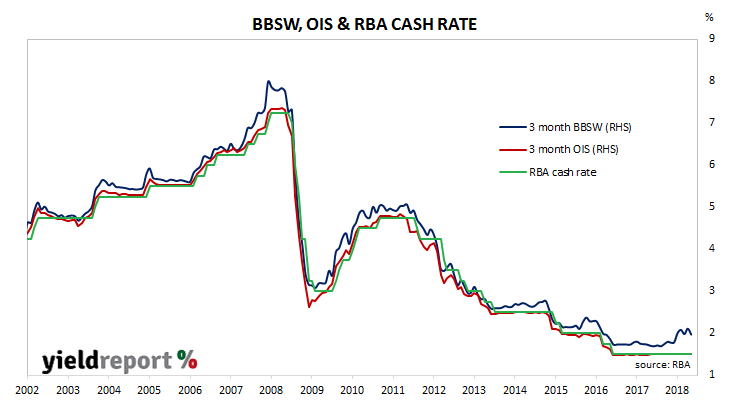The bank bill swap rate, often referred to as “BBSW”, is a notional interest rate which is meant to represent a sort of average of interest rates of bank bills. It is derived from interest rates on bank-accepted bills of exchange, otherwise known as bank bills, and it is used as a reference rate for billions of dollars of loans and debt securities in Australia
Although BBSW has fallen back down below 2.00% in the last week or so, it still remains noticeably higher than the RBA cash rate or the overnight indexed swap (OIS) rate. As 3 month BBSW rates have averaged around 15bps more than the cash rate over the last two decades, the recent widening of this spread to 50bps or more has raised some eyebrows and provoked a discussion among interested observers and economists.

In March, Westpac chief economist Bill Evans explained the change as a result of offshore activities. More recently, officials from the RBA said it could be explained by higher US funding costs and “other factors at work”. This week, Commonwealth Bank strategists Philip Brown and Scott Rundell added some additional thoughts on the topic.

